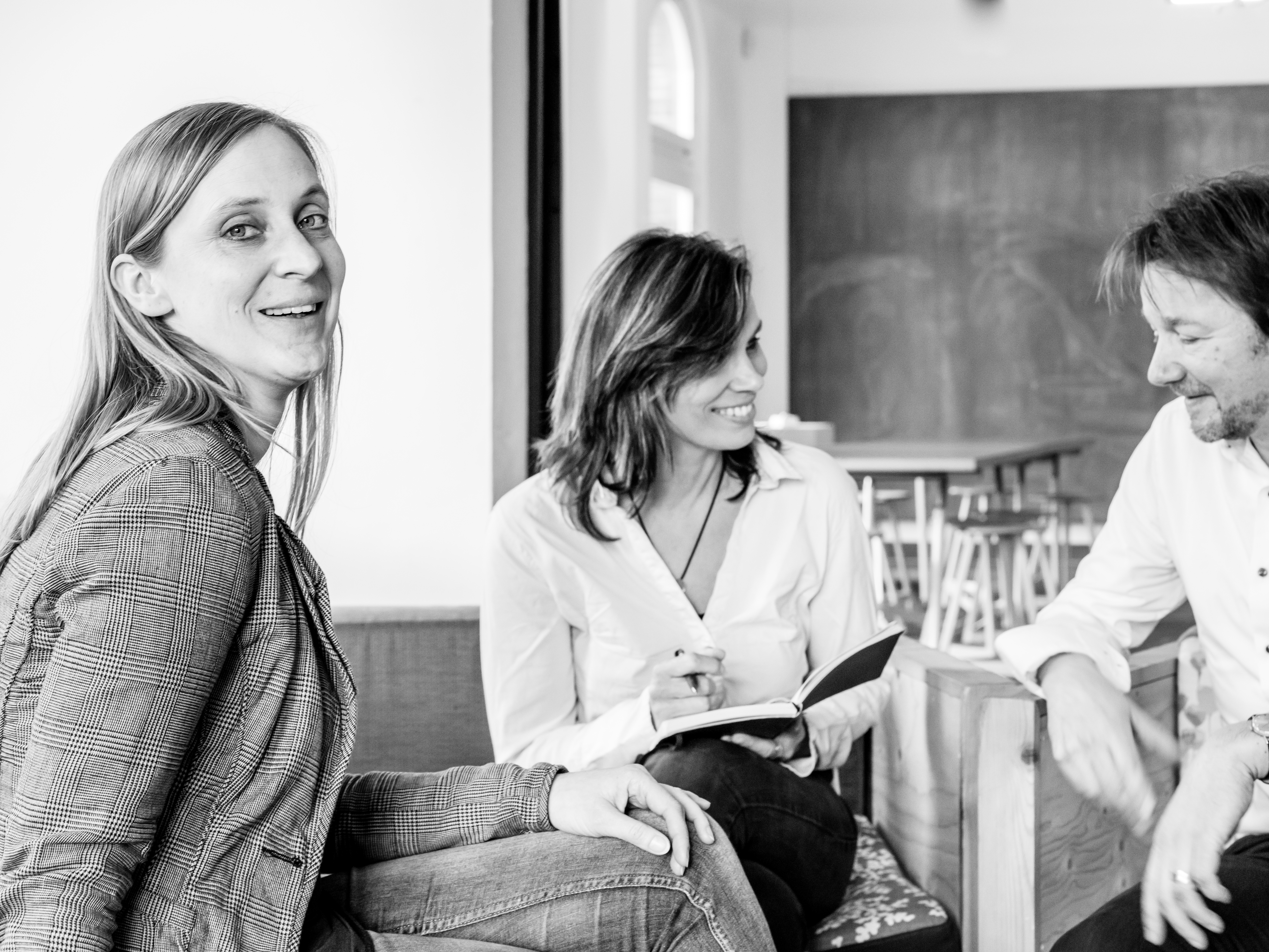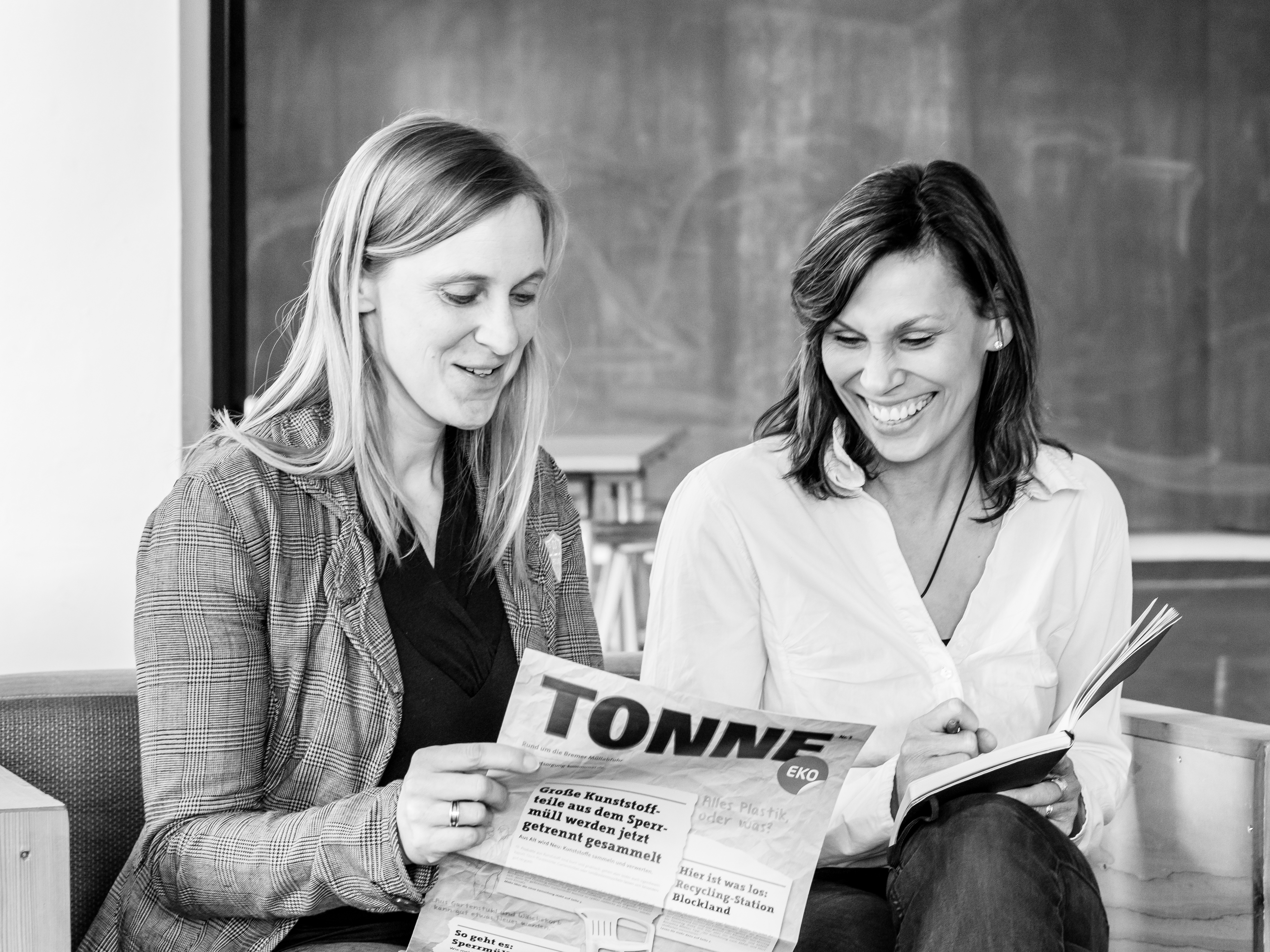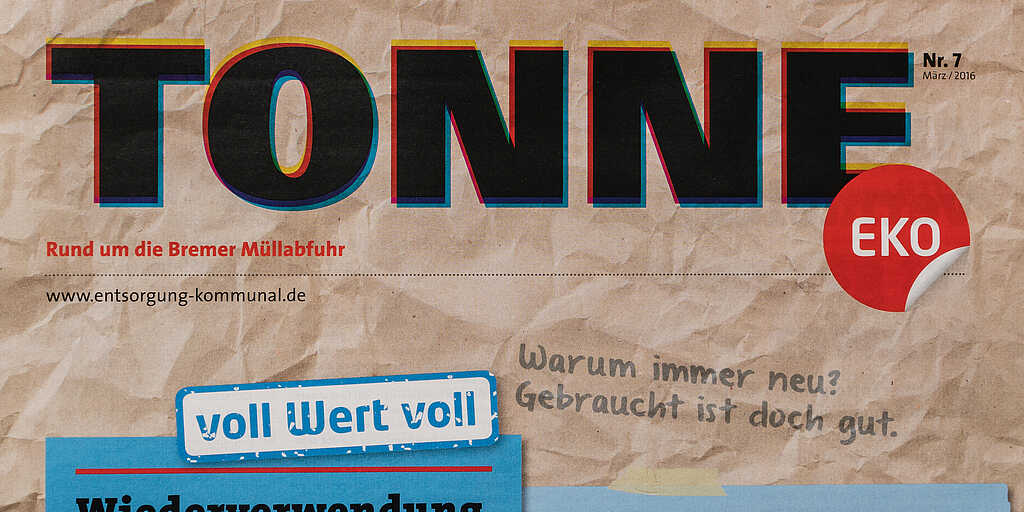

Umweltbetrieb Bremen (Bremen Environmental Public Service) bundled its varied services under the brand EKO Entsorgung kommunal (Municipal Waste Disposal) in 2012/13. The heart of this new communication was the idea of a customer magazine for which we could contribute both the development of a title and the design. The powerful »TONNE« (waste bin) came out on top at the end from a series of smart title proposals causing exactly the gratifying client’s enthusiasm that we had wished for – making us glad to this day.
The customer magazine is a small newspaper in DIN A3 format and bundles the latest topics about waste disposal in an entertaining fashion for the citizens, from interviews and information texts to photo reportages. The editorial team is made up of the people responsible at Umweltbetrieb Bremen, freelance journalist Ulrike Skäbe, Tristan Vankan for photography, and us for graphic design, illustration, and production. The TONNE is distributed to all households in Bremen and via dispensers at the recycling stations.
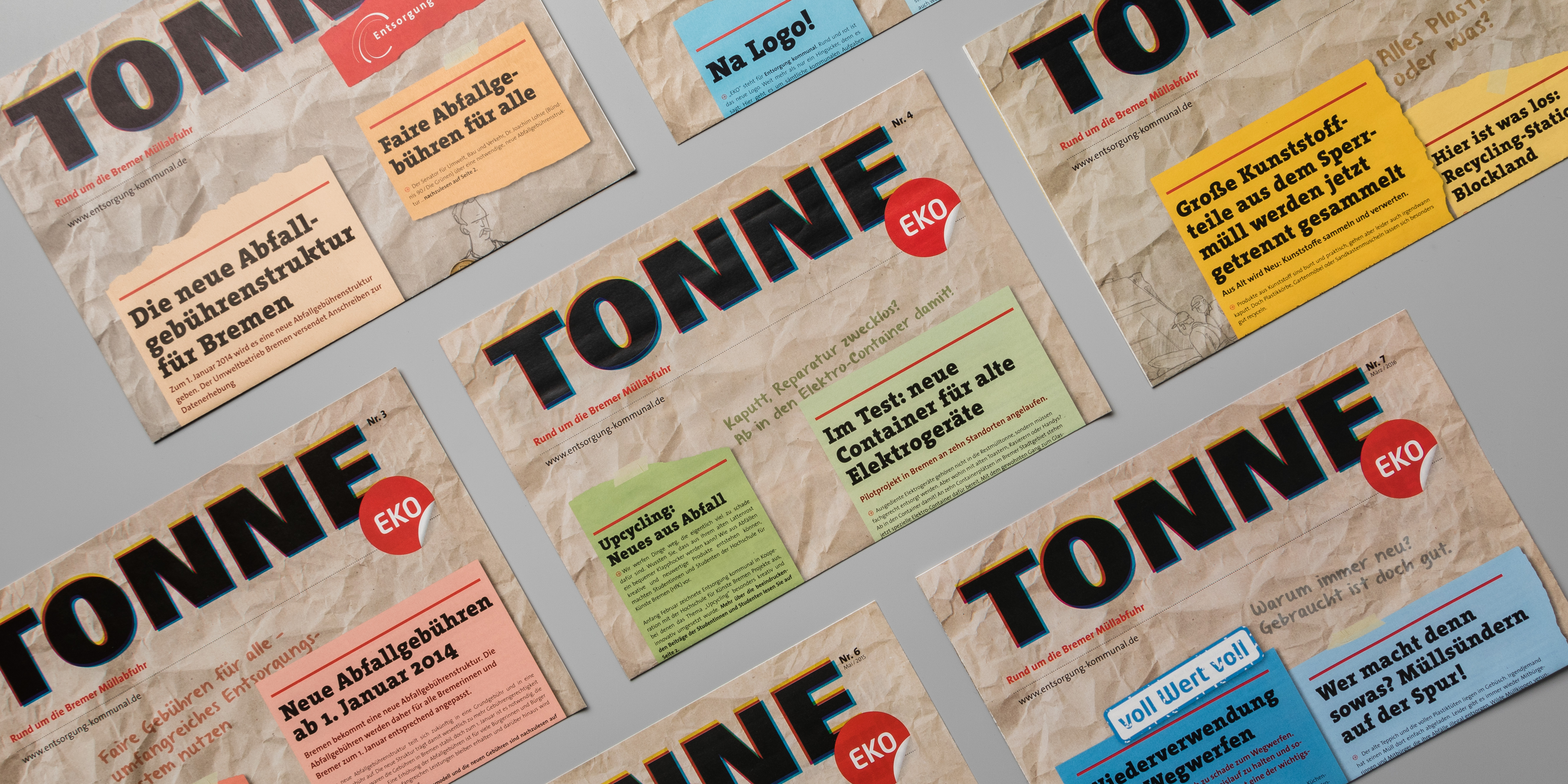
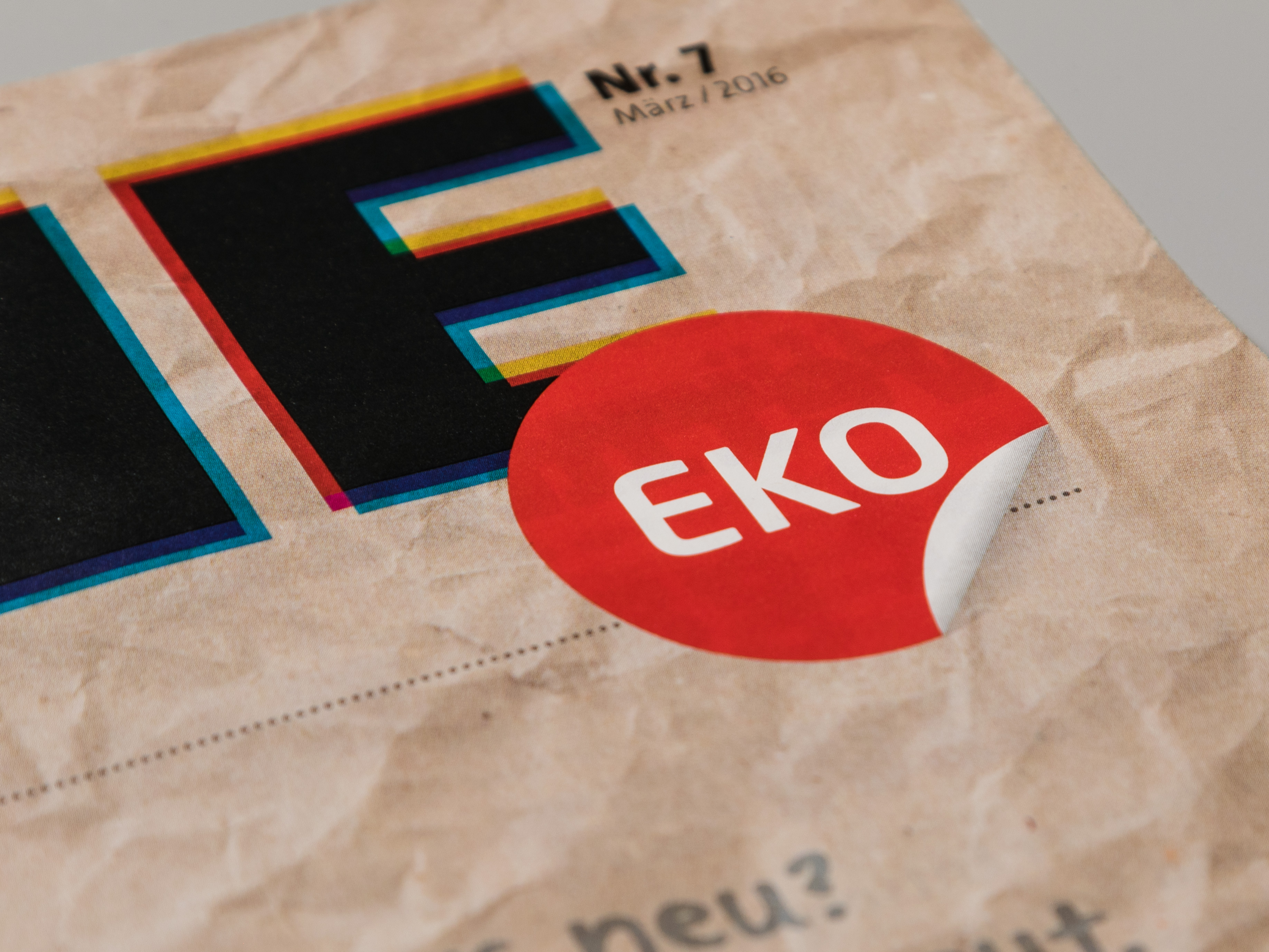
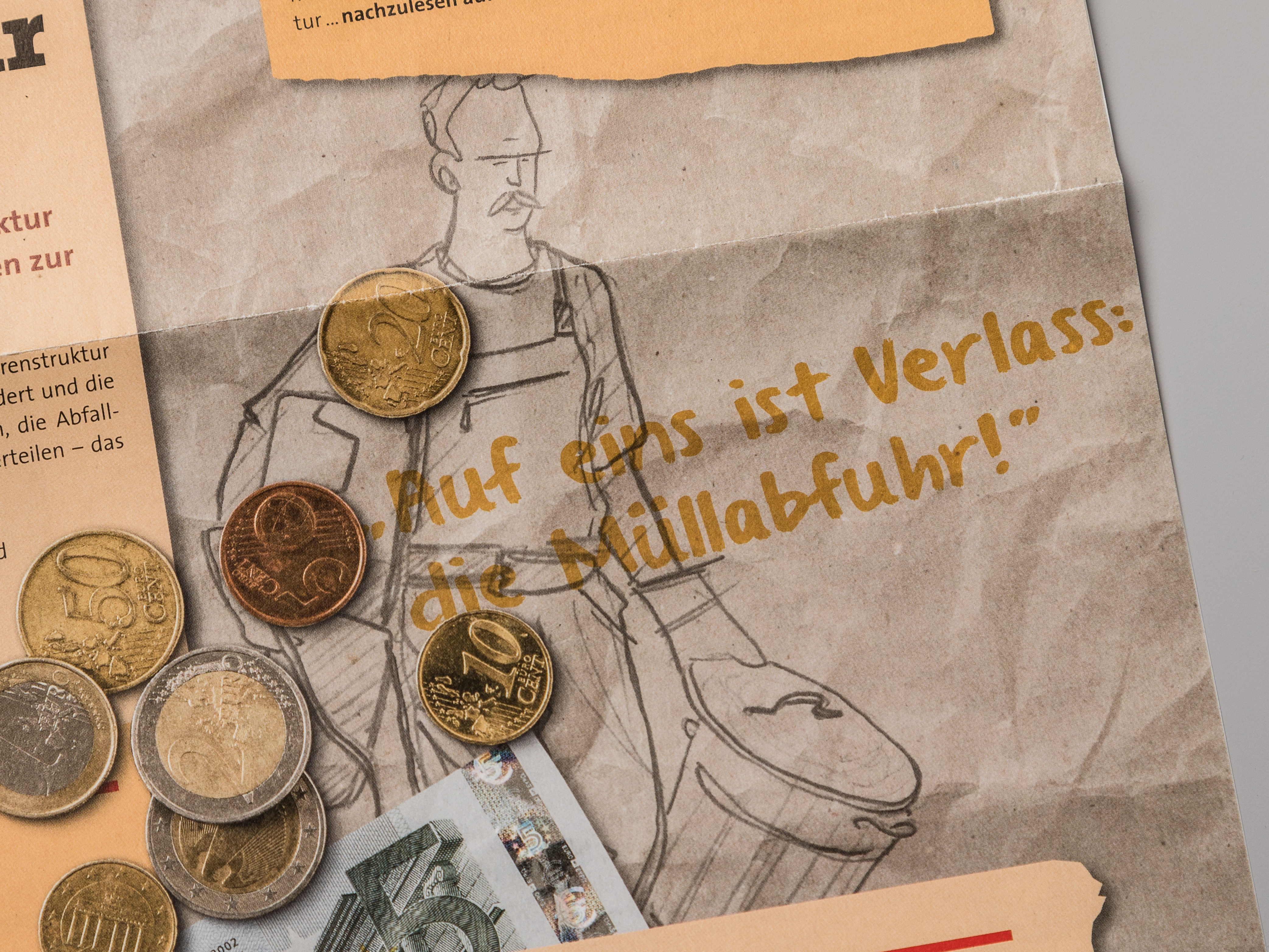
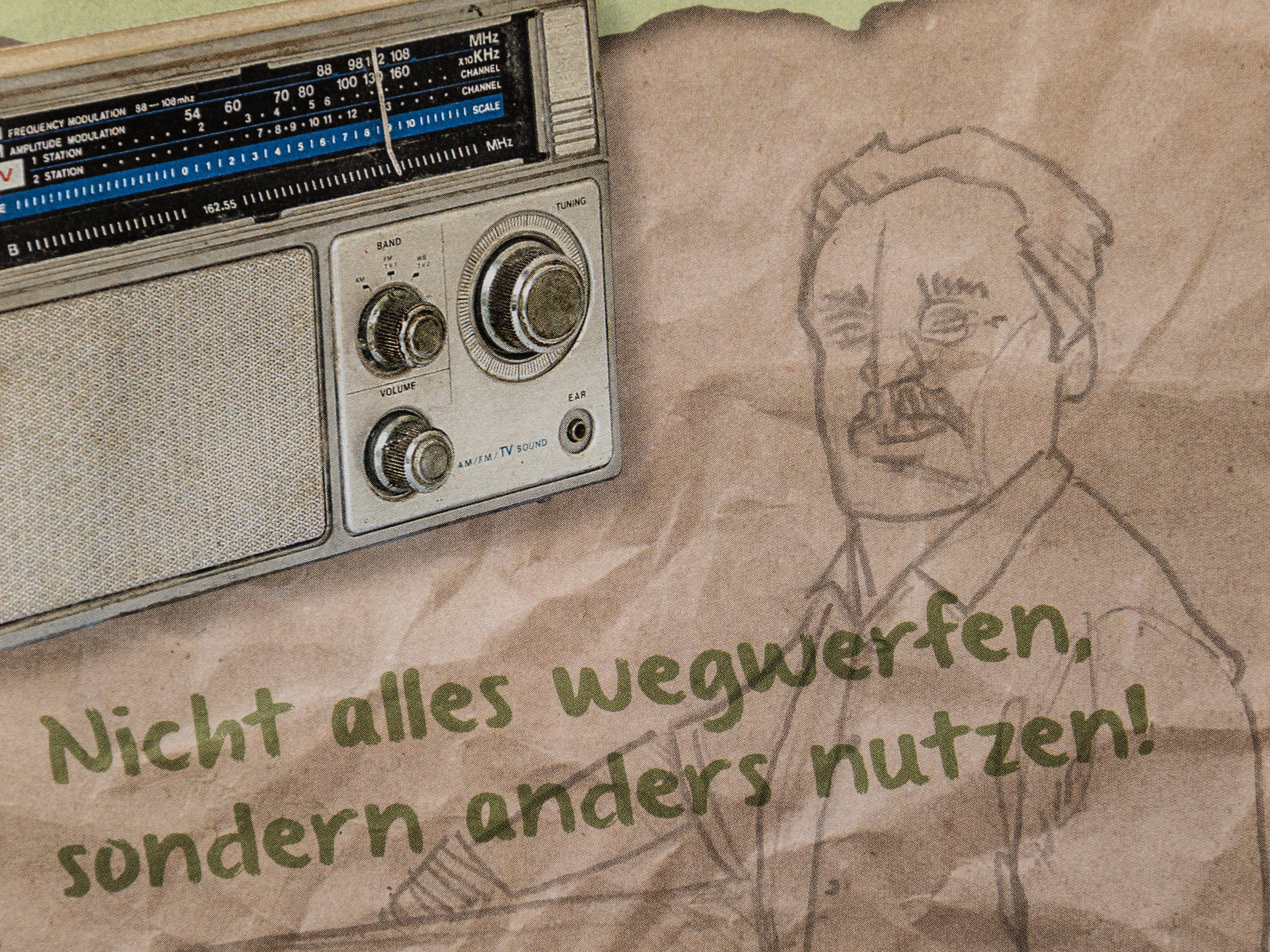
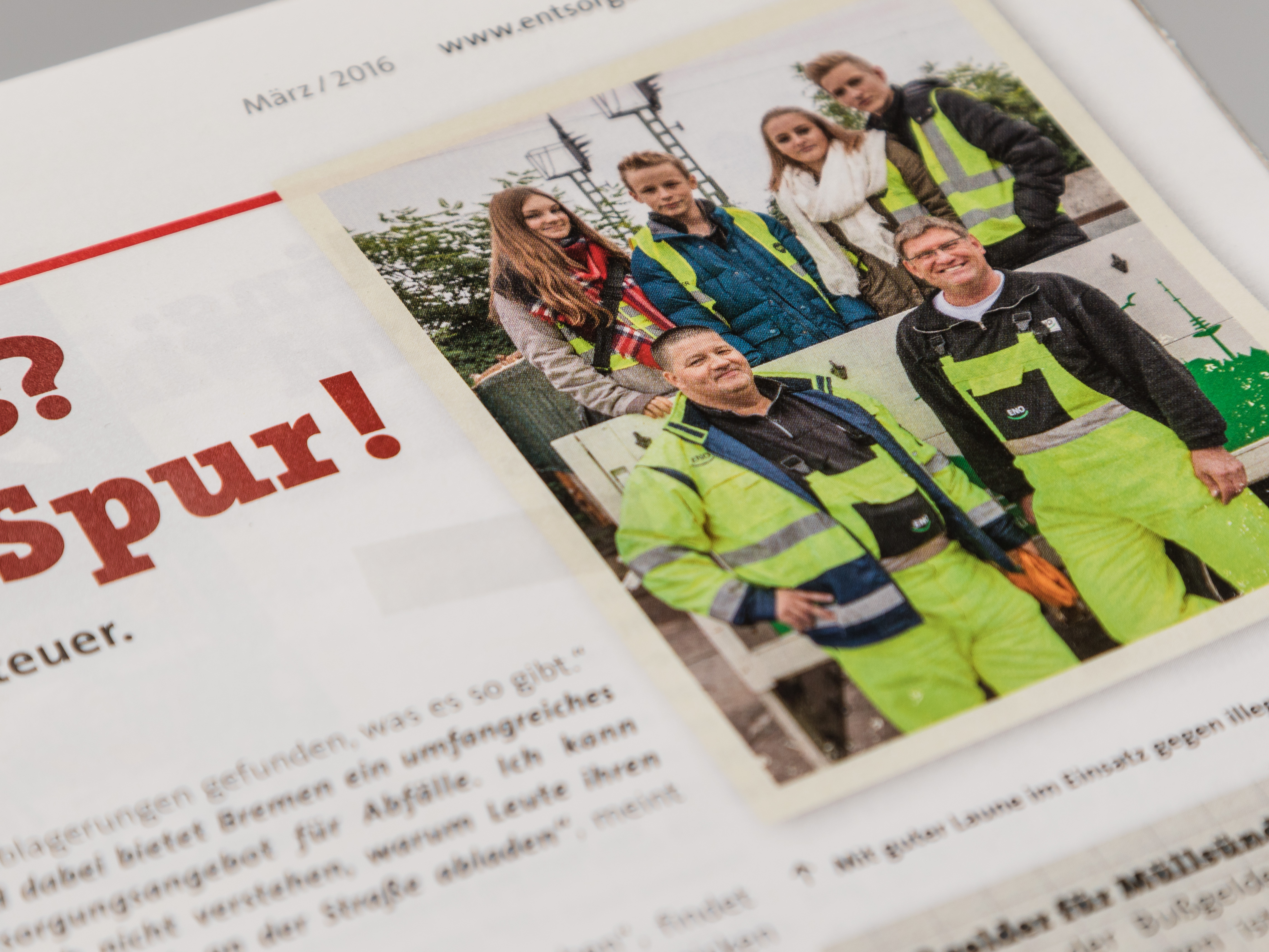
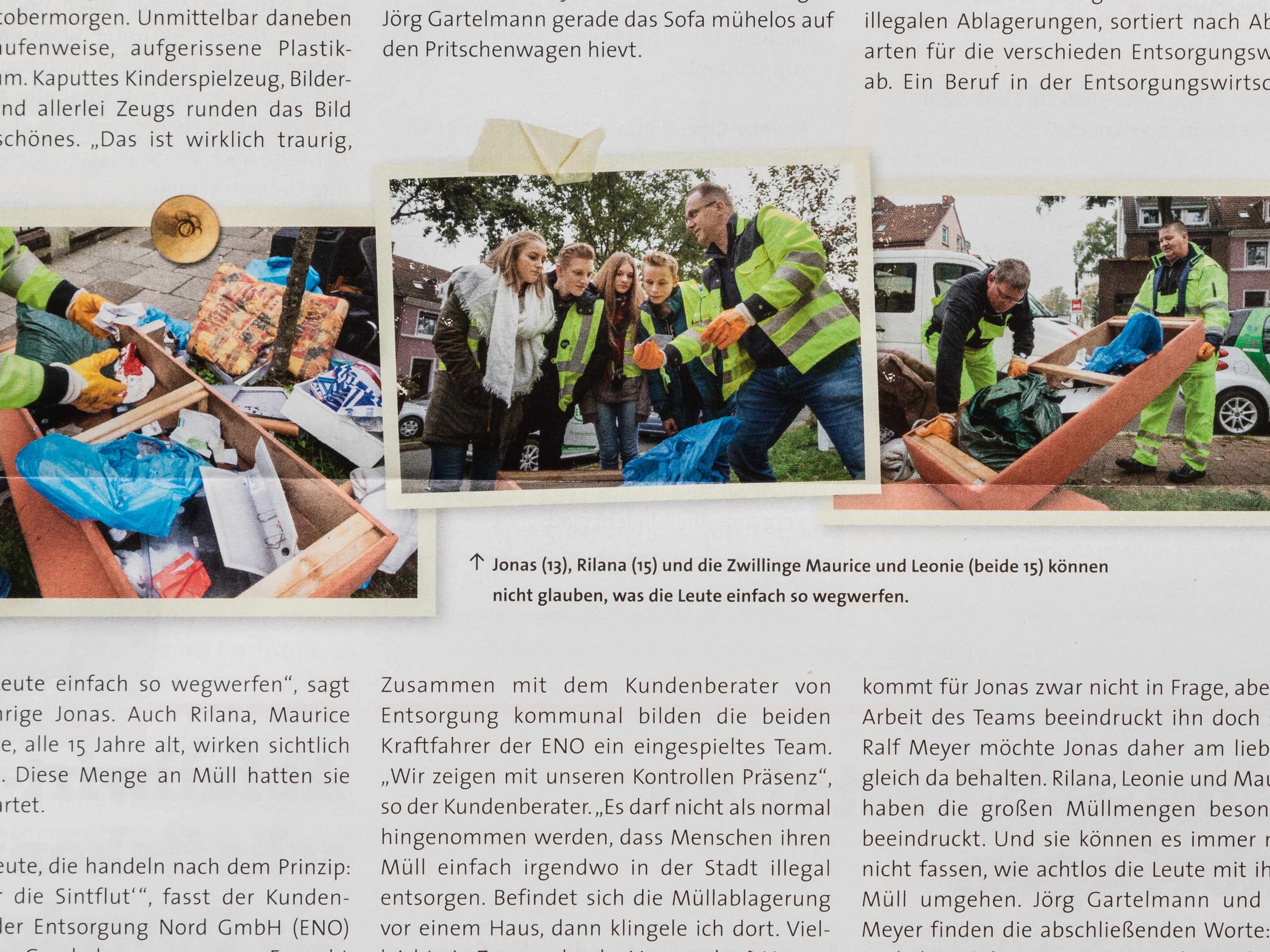
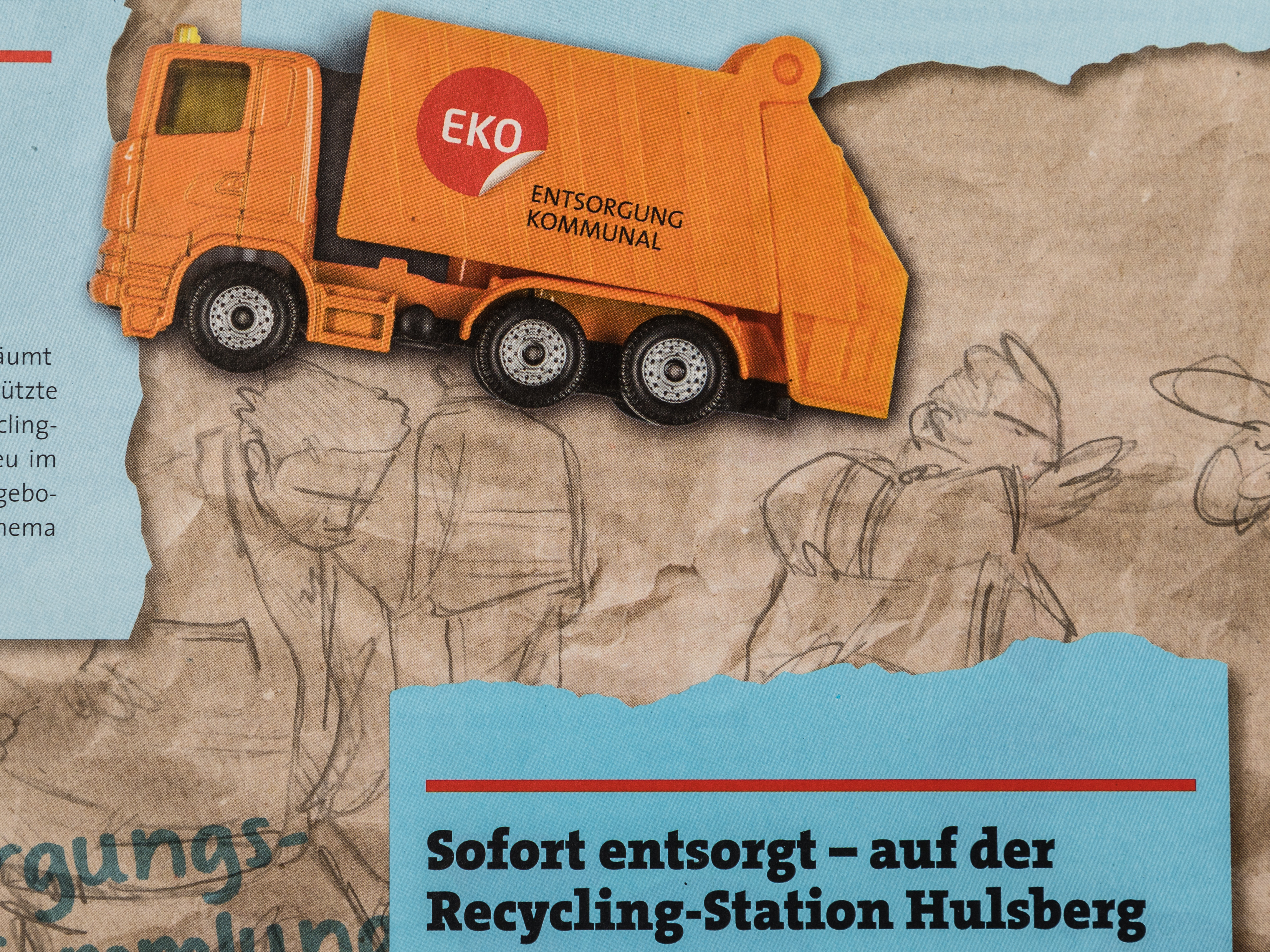
A cold day in Bremen in the winter of 2016. As a project team, we are talking with freelance editor and copywriter Ulrike Skäbe about the subject of corporate publishing in general and our joint project TONNE in particular. And somehow an interview evolves – Stephan Kappen is the questioner.
Mrs. Skäbe, Mrs. Beckmann, the seventh issue of TONNE, the customer information of Umweltbetriebe Bremen (Bremen public environmental services), will be distributed to households in Bremen. Is there so much to tell about waste or are you running out of ideas?
ULRIKE SKÄBE: There is plenty to tell as there is also a lot of waste. Seriously, waste management is really complex. I would not have thought of that a few years ago, when I began to work as a copywriter more intensively for the disposal sector or for municipalities. From the collection of waste to the most modern plant technology. The cities do not only have a disposal service to fulfil. Reuse is the keyword. Today, it is much more about how to recycle things and thus avoid waste. More responsible action is required not only by the public, but also in trade and politics. There are good approaches, but it is still a long way. And so we never run out of ideas.
In the current issue, the reportage on garbage detectives highlights the phenomenon of illegal bulky waste. Is this an increasing development, a form of social neglect?
ULRIKE SKÄBE: I would not express it so drastically. It is noticeable, however, that illegal waste dumps appear again and again in certain districts. I mean, it is a social problem that is closely linked to education. As a little girl, when I was just throwing away my chewing gum wrap, my mother immediately warned me. The correct behaviour when dealing with waste has to be exemplified. And of course, a parent should set a good example. The teenagers who participated in the reportage were really shocked. This was a no-go for them they will not soon forget.
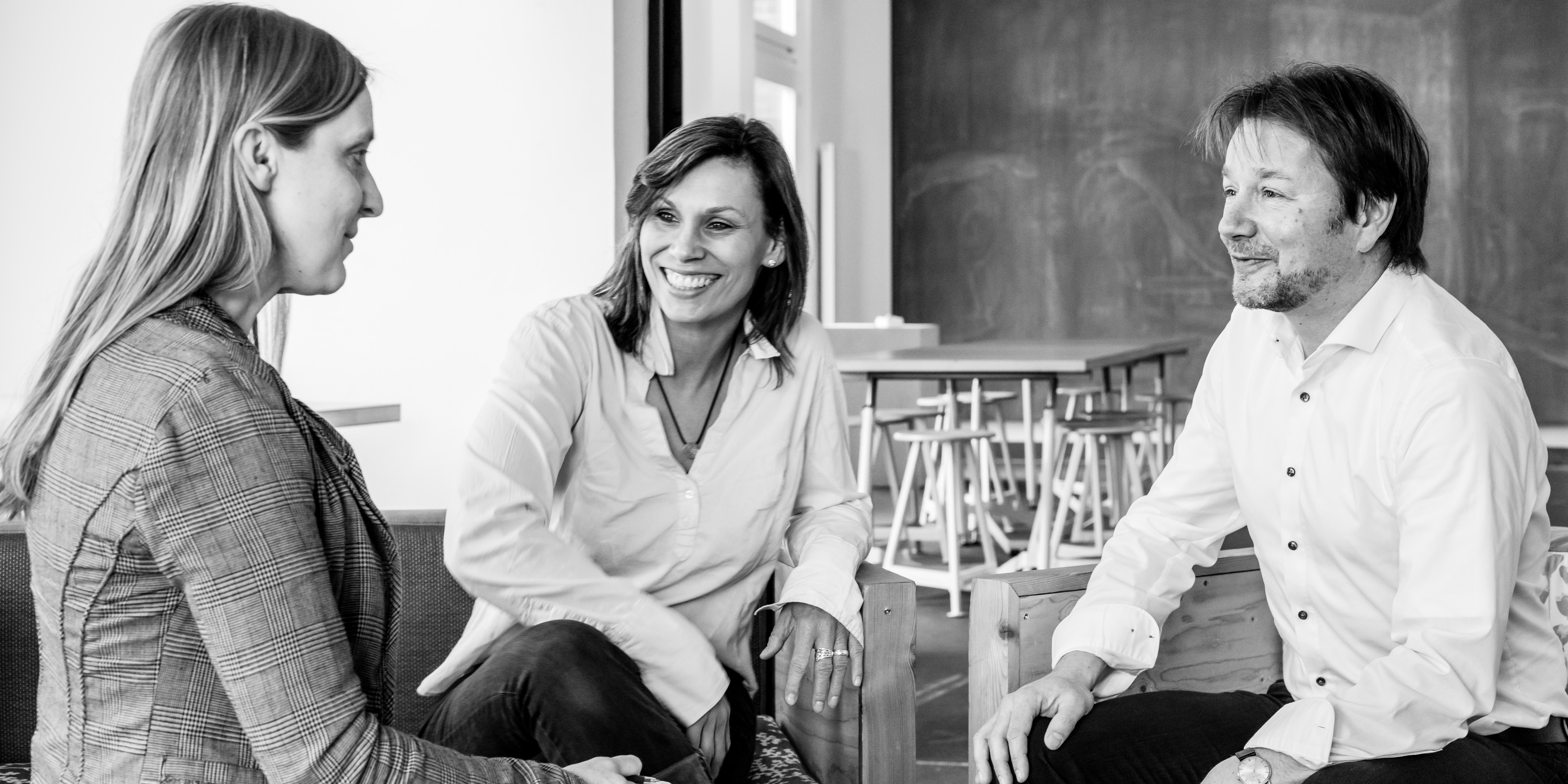
Maybe the service of treatment and handling of waste is taken too much for granted?
ULRIKE SKÄBE: Yes, maybe, and it is also not particularly appreciated. Of course, we all have to pay waste disposal charges, and yes, sometimes something does not work optimally here and there. But whoever was often abroad knows how well our disposal system works here. We have a good infrastructure, the citizens know their rights and duties. A well-functioning disposal system with many services is now dependent on the participation of the citizens. And the Bremen citizens are doing well, I think.
So there is still a need to communicate from Umweltbetriebe Bremen?
ULRIKE SKÄBE: I would rather say: a need for dialogue. The company offers approaches to get in touch with the people of Bremen and to encourage them to take part with their own activities. It encourages them to participate. Example: During the »Tasche statt Tüte« (cloth bag instead of plastic bag) campaign, the company gave away handmade cloth bags at Bremen market square last year. The citizens were therefore asked to use cloth bags instead of plastic bags. A good thing. I also have one and often use it.
ASJA BECKMANN: This is also the reason why TONNE approaches people as a printed medium – rather than as a digital forum. In the latter, the dialog function would be given directly, but the address is too uncontrolled. We want to reach people. In this aspect, the good old print media still has the advantage: we touch – in a manner of speaking – our contact persons with high reliability. I also think that the subject, especially in TONNE, is more likely to promote participation than dialogue. In this regard, a medium with a commentary function would not be that suitable.
ULRIKE SKÄBE: In fact, one has to make a clear distinction: in every promotional approach, the call to action prevails over the call to dialogue. But we are faced with the objective of also manifesting the positive awareness of the correct environmentally responsible behaviour. This does not work as a sender-receiver message – this only reaches people as a conversation offer. This is how I understand the contents of TONNE.
Does the graphic presentation of TONNE support this aim?
ASJA BECKMANN: Absolutely, with the newspaper-like large format, we are deliberately leaving the rather informative DIN A4 format and, from issue to issue, we use striking, colourful titles, which I also understand as a spirited wink at »waste«. This entertaining fashion continues in the inner part. It was important to us to give all the quite serious questions about disposal a certain visual appearance in order to make them approachable.
Is keeping the right mix of seriousness and entertainment a narrow ridge?
ASJA BECKMANN: In the field of corporate publishing, this is always an extremely narrow ridge.
ULRIKE SKÄBE: One might even say that one can only make a part of the readers wrong.
ASJA BECKMANN: Drastically verbalized, but there is something to it. As a company with a willingness to communicate – to a genuine, sustainable discourse with the so-called stakeholder groups – one cannot help assuming an attitude, in regard to content and design. And there is almost always someone who sees it differently. The biggest mistake is, in my opinion, to make your own attitude without profile for precautionary reasons losing a clear perception. This is the least the readers are willing to forgive. Courage, on the other hand, is rewarded. In this respect I am very glad about the rather unusual design that we are allowed to deliver here in the form of TONNE for Umweltbetriebe Bremen.
This sounds like a bit of risk – and companies are better off avoiding this in their communications, right?
ULRIKE SKÄBE: I would rather say: It is very hard to communicate authentically and to enter the dialogue. And companies and institutions often avoid these efforts. However, there are professional supporters who ease their workload from ideation to implementation – us, for example. The client can focus on setting the relevant topics and directing the right style, and we will take care of the realization for text and design. Actually a fairly relaxed constellation.
Is the work process really that relaxed?
ULRIKE SKÄBE: (laughs) No, quite the contrary. All the clients I know are increasingly involved in the operational editorial work and do participate, the more clearly they feel that a good communication situation develops. At the end, everybody wants to be part of the good dialogue.
Is it worth the effort and the financial investment for companies to have a dialogue with customers via a customer magazine, for example?
ASJA BECKMANN: The value often cannot be measured in the direct marketing effect – the instruments are simply missing. But in my opinion, the impact on the company’s internal attitude, on the awareness, and the employees’ ability to speak, is of considerable importance. And as soon as a real dialogue with the customers emerges, the marketing effect increases. This applies to products as well as services. People trust a company more if they can enter a kind of relationship with it. Relationship means something reciprocal, thus also an exchange of information and above all attitude. And all this is contained in a dialogue, as a magazine creates it in the better case.
ULRIKE SKÄBE: This will be confirmed by any good consultant or salesperson: talking to the customer is always helpful. Everything starts with a good conversation.
